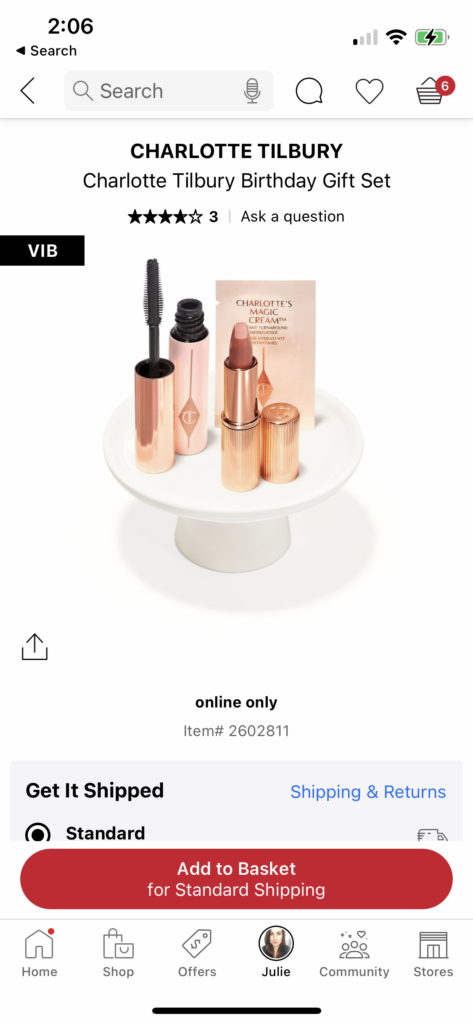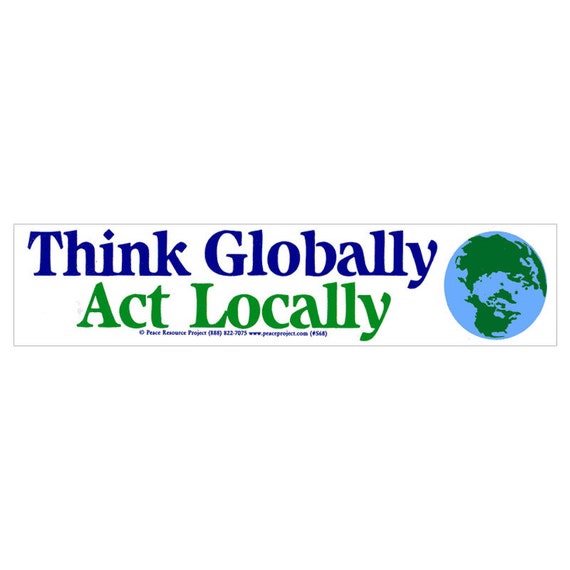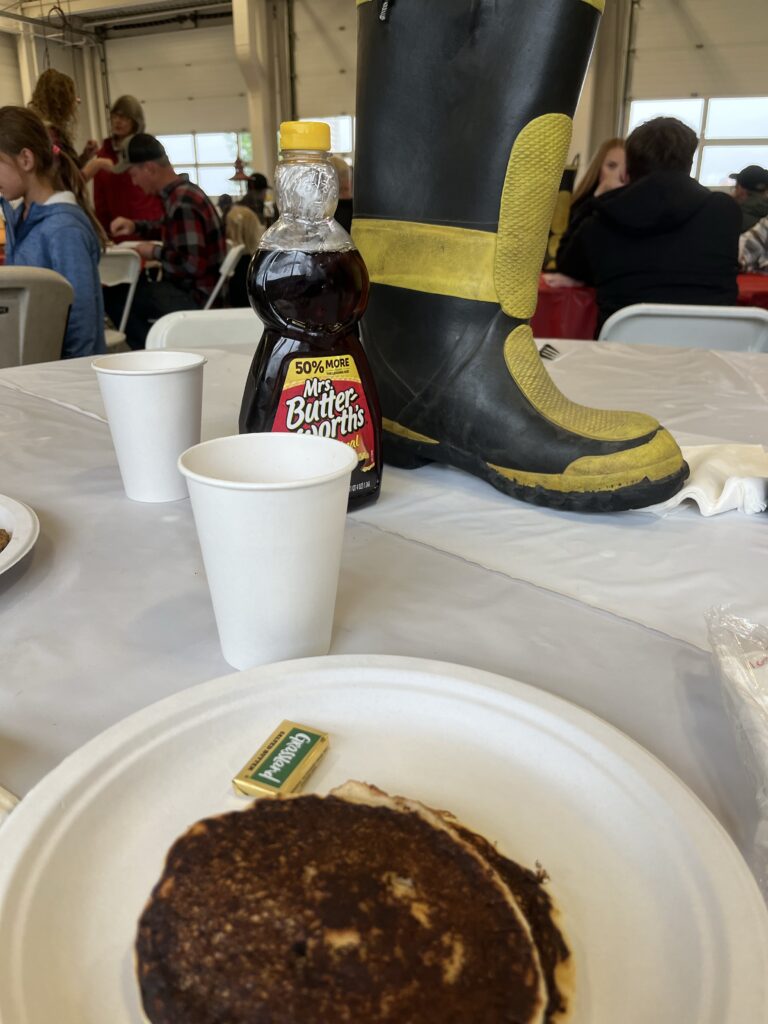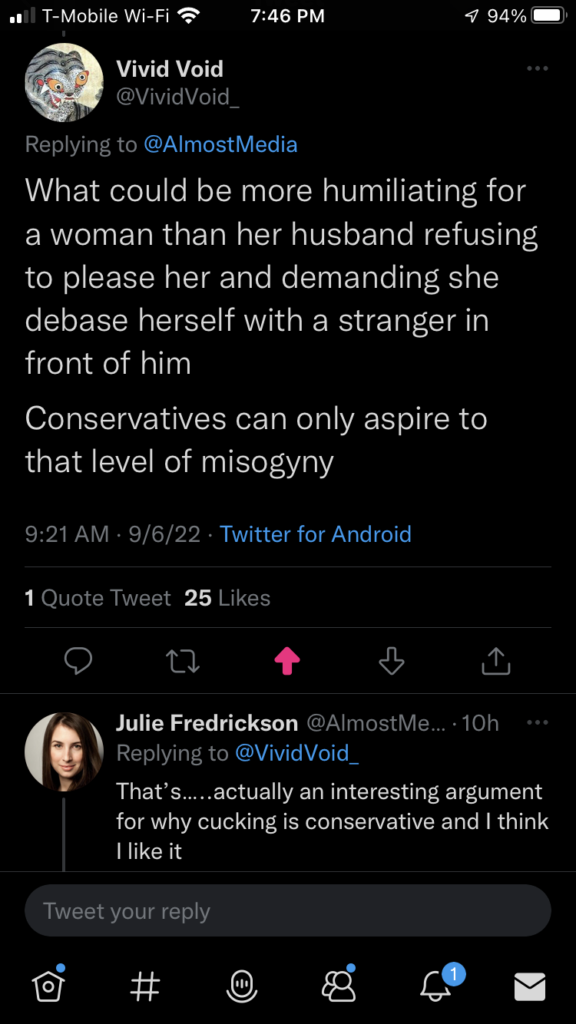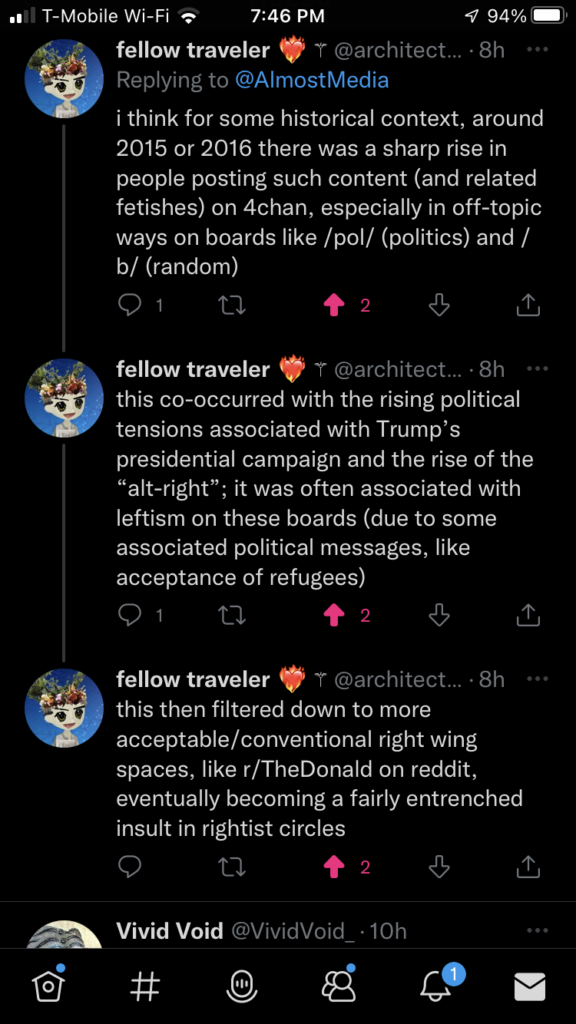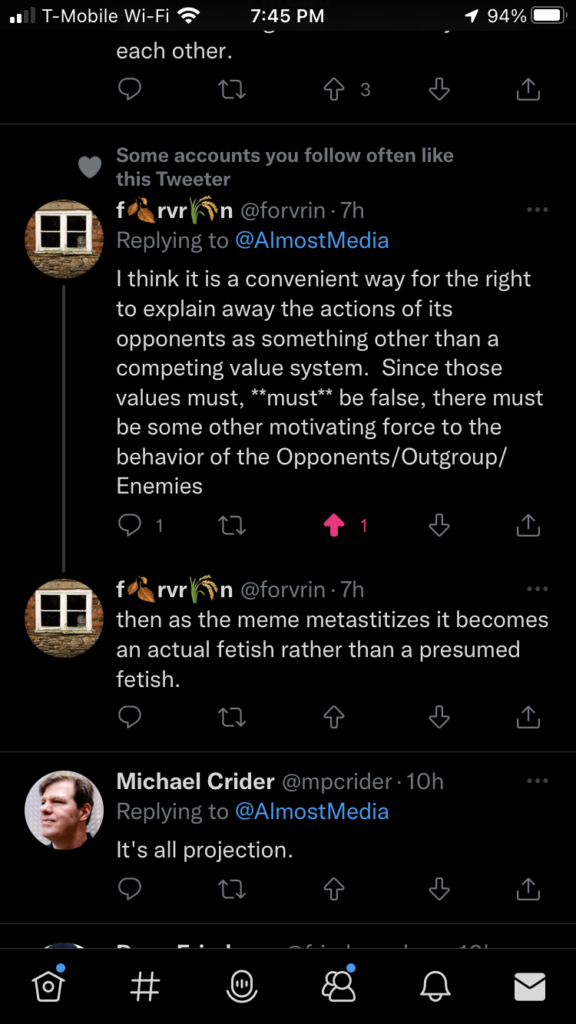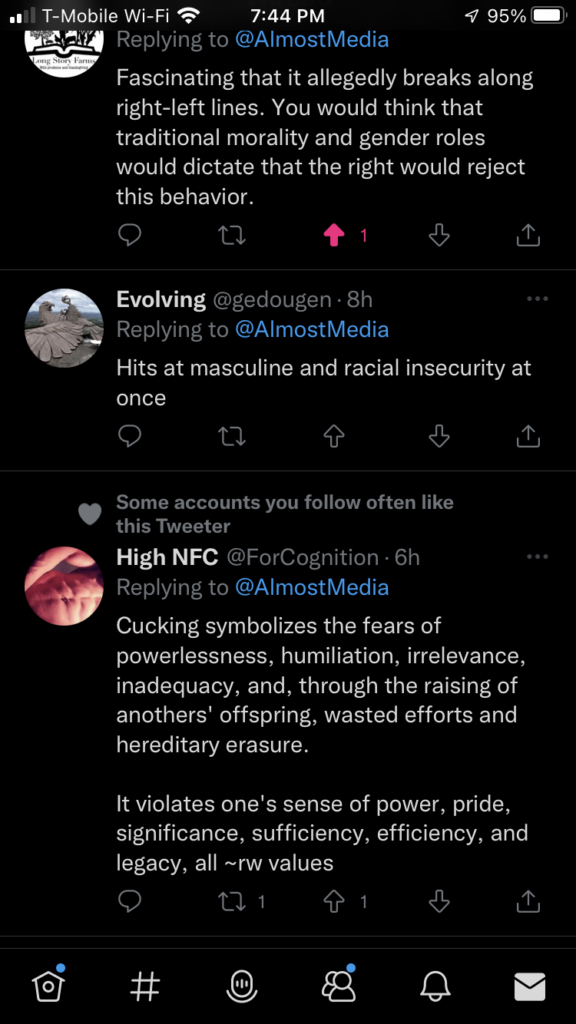A bunch of people asked me about what happened to me on Twitter over the weekend. I’d been hitting a bunch of different niche communities like startup Twitter, finance Twitter, doomer Twitter, and discourse Twitter with a thread that has a bunch of extremely extra and occasionally outright hostile weirdos saying reactionary shit.
I think it all started when my friend Ashley wrote a post about the commodification of women’s bodies. She was responding to another piece of discourse and found herself getting dog piled by one of the most irritating but unavoidable portions of the the internet; reactionary angry young men.
I didn’t like that Ashley was getting ripped for functionally agreeing with right coded, socially conservative men. I thought “damn, you can’t win with them”.
Entering the Fray
I decided to jump in and tease some of these boys. My inner child loves to shitpost as she finds humor and playfulness protective. I promptly got blocked. I went about my business. Now that I live on our homestead in Montana, I’ve got a lot of chores.
But I couldn’t leave well enough alone. I kept discussing the damn discourse. I expressed my concern that we’ve got such an intense population of reactionary young men who act as if they are perpetually victimized. I expressed empathy for how men are getting screwed and mostly got told it is women’s fault. It did some numbers but it wasn’t going into a context collapse situation just yet. Basically another day on Twitter.
The thread started out with all of the empathy and good faith I’ve come to expect from niche Twitter. We avoided purity politics. Tucker graciously discussed his own journey and how he let go of anger and began taking responsibility for himself and his family. Jack made some jokes. A number of internet friends discussed the varied ways they handled the systemic discrimination that some masculine virtues experience in modernity. Much wisdom was shared about how different they had grown up to be men.
Later that night I wrote a throwaway post about how we’ve got a crisis of masculinity and maybe only other men can get through to angry young boys? I suggested that perhaps right coded men who discuss modern masculinity would have an easier time reaching them. I tagged Tucker Max and Jack Murphy as men who seem to have done a good job taking responsibility for their own lives.
I basically went to bed with a sense that people had been good to each other. And I didn’t really notice being quote tweeted by a niche main character in groyper Twitter or what it would mean for my tomorrow.
It Escalates
His thread contained the following:
- A very intense discussion of the ethics of doing butt stuff and posting about your experience with polyamory and cuckcolding.
- The ethics of charging for coaching and clubs and whether one can have masculine virtue if your wife sleeps with other men.
- A surprising amount of hysterics about what constitutes hypocrisy if one claims to be masculine.
Basically a bunch of people who haven’t figured out their own shadow lives told me exactly how uncomfortable they were with other people’s sex lives.
But honestly it was just so much fucking butt stuff.
Unfortunately that visibility of discourse meant I suddenly got flooded with harassment. A coordinated re-tweeting campaign began. People started digging into back posts and old news headlines. My direct messages got flooded with threats against me and my husband. It was definitely enough that we started thinking about security around the homestead.
I can only assume someone’s group chat or some message board was like “look at the phenotype on this bitch”. And to be fair, some people came with good jokes about venture capitalists moving to Montana. But then there was the graphically racist, as in, “oh we still have Nazis” plot twist. I realized I might need to actually start blocking people. I felt modestly disappointed as I hadn’t been dogpiled in a long time. But protecting myself was more important.
Why
Now you can ask why am I even stepping into these spaces if they contain this kind of abuse? What can I say there is a part of me who enjoys a frisson of danger. The feminine urge to protect our menfolk often runs head long into the reality that they can be dangerous. Walking into male spaces has inherent risks if you take up space in public life.
I have to be honest honest with myself that there is a breed of men who considers all public spaces to be male. I am an offense to them even if I am in the process of lamentation for our men. The space I take up by existing with different preferences is proof enough I am an enemy to be subjugated.
So I guess I owe anyone I teased about blocking on Twitter an apology. There are some people in too much pain out there. And I am not in anyway responsible for their emotional health. Only they can choose to let go of the pain.

